USA
-
Savich, Agnes Eva
Agnes Eva Savich
Born 1976 in Krakow, Poland
Living in Austin, Texas, USA
Agnes Eva Savich has been writing haiku since 2003. A featured Southwestern Haijin in Roadrunner Haiku Journal (2006), she continues to be published in haiku journals, and has an early collection of poetry, The Watcher: Poems (Cedar Leaf Press, 2009).
https://agnesevasavich.wordpress.com
Contact the poet -
Schlaht, Albert
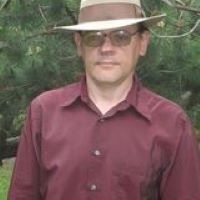 Albert Schlaht
Albert SchlahtBorn 1966 Ronan, Montana
Residing in Missoula, Montana, USAThis email address is being protected from spambots. You need JavaScript enabled to view it. is a Routing Analyst in Montana, where he earned his degree in Creative Writing 2000 from the University of Montana. He pens writings of a short nature, which have appeared in various journals. He has two books published, Schlaht Family History 2011, and Singers in the Skull 2014.
-
Smith, Thomas F
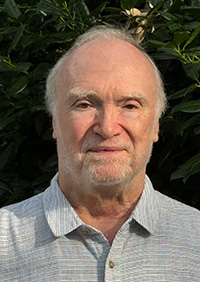 Thomas F Smith
Thomas F SmithThomas Smith is a physician and former University Professor. He began writing poetry seriously after his book in verse The Search for King: A Fable was published in 2022. He since has published in multiple genre in a number of literary journals. He lives in Austin, Texas, with his family.
-
Speiss, Robert Clayton
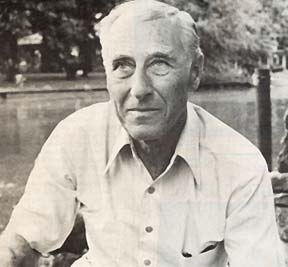 Robert Clayton Spiess
Robert Clayton Spiess(16 October 1921 – 13 March 2002)
“A true haiku is an experience experiencing itself.”
(Speculations by Robert Spiess)
Robert Spiess, editor of American Haiku and Modern Haiku was born on 16 October 1921 in Milwaukee, Wisconsin. After graduation from high school, he enrolled at the University of Wisconsin, in Milwaukee, in 1939 but his plans were interrupted by World War II. He was drafted into the Army Air Force and trained as a cryptographer. Perhaps it was his war experience that helped determine the peaceful path he would follow thereafter. He earned his B.S. degree from the University of Wisconsin, majoring in Botany and English, and then received an M.S., with a major in Vocational Guidance.
Robert became interested in haiku in the late 1930s, through early translations of Japanese haiku.
In the late ’40s and early ’50s he acquired R.H. Blyth’s four volumes of Haiku, and from then on he became hooked on this poetic genre. Robert Spiess published his first haiku in 1949 in American Poetry Magazine, and he became a participating writer. In 1963, he purchased the premiere issue of American Haiku and two of his poems were published in the second issue. A few years later, he accepted the position of poetry editor for that journal.
Robert Spiess’ first collection of haiku, The Heron's Legs, was published in 1966 by American Haiku in Platteville, Wisconsin and over the years he published ten more books. He was also the author of several articles and essays on haiku and his poems have been featured in numerous publications and anthologies. The premier issue of Modern Haiku was published in 1969, and ten of Robert's haiku appeared in the second issue. Within a few years, he was appointed associate editor of that journal. In 1977, he published the first of his "Speculations on Haiku" in Modern Haiku, and in 1978, he became that journal's editor and publisher until his death in 2002.
Robert's countless contributions were integral to the evolution and success of English-language haiku and he was an instrumental mentor in the haiku careers of many contemporary haiku poets.
Books Published:
- The Heron’s Legs (American Haiku, Platteville, Wisconsin, 1966);
- The Turtle’s Ears (Wells Printing Co., Madison, Wisconsin, 1971);
- Five Caribbean Haibun (Wells Printing Co., Madison, Wisconsin, 1972);
- The Shape of Water (Modern Haiku Press, Madison, Wisconsin, 1982);
- The Bold Silverfish and Tall River Junction (Modern Haiku Press, Madison, Wisconsin, 1986);
- New and Selected Speculations on Haiku (Modern Haiku Press, Madison, Wisconsin, 1988);
- The Cottage of Wild Plum (Modern Haiku Press, Madison, Wisconsin, 1991);
- A Year’s Speculation on Haiku (Modern Haiku Press, Madison, Wisconsin, 1995);
- noddy (Modern Haiku Press, Madison, Wisconsin, 1997);
- noddy & the halfwit [with Lee Gurga] (Modern Haiku Press, Madison, Wisconsin, 1999);
- some sticks and pebbles (Modern Haiku Press, Madison, Wisconsin, 2001).
Some awards and other honours:
- In 1988, Robert Spiess was awarded the Haiku Society of America's Special Recognition Award "for a profound, insightful book about haiku".
- In 2000, in Matsuyama, Japan, Robert was presented with the first Shiki International Haiku Award for his achievement in disseminating and deepening the understanding of haiku in English-speaking countries.
- From 2000-2001, Robert was Honorary Curator of the American Haiku Archives.
Selected work:
among these willows:
and breathing the light that falls
from leaf to green leaf(The Heron's Legs, American Haiku, Platteville, Wisconsin, 1966)
*
A drive out of town —
and best of all the billboard
that a wind blew down(Modern Haiku Vol.5:1, 13, 1974)
*
Evening in the park
— and the snow lodging also
in the statue’s eyes(Modern Haiku Vol.6:1, 11, 1975)
*
A couch à la Freud, —
curing souls of sex and things
by which they’re annoyed(Modern Haiku Vol. 6:3, 21, 1975)
*
“Canoeing the Bend” [sequence]
(Modern Haiku Vol.8:3, 12, 1977):canoeing the bend —
a fox in the evening dusk
mouses in a field
canoeing the bend —
a man throwing stones at coots
turns away
canoeing the bend —
motionless, a short-eared owl
watches from an oak
canoeing the bend —
on a sunny ledge of rock
a rattler stirs
canoeing the bend
another bend ahead
thank you
canoeing the bend
in a spit of April snow —
warblers flying by*
a square
of water
re f l e c t s
the moon(The Shape of Water, Modern Haiku Press, Madison, Wisconsin, 1982)
*
ice cubes
aging
in each one's glass(The Bold Silverfish and Tall River Junction, Modern Haiku Press, Madison, Wisconsin, 1986)
*
the field's evening fog—
quietly the hound comes
to fetch me home(The Cottage of Wild Plum, Modern Haiku Press, Madison, 1991); Frogpond 14:4 (1991)
*
wild roses . . .
tarrying beside one
touched by time(From a Kind Neighbor, Haiku Society of America Members’ Anthology 1997)
*
walking for my heart...
so many little karmas
beneath a step(some sticks and pebbles, Modern Haiku Press, Madison, Wisconsin, 2001)
Some essays:
- “Multiple-sense Imagery in Haiku”, Modern Haiku Vol.2:1, 15–16, 1970
- “Notes on Writing Haibun”, Modern Haiku Vol.3:1, 11, 1972
- “The Problem of Originality in Haiku”, Modern Haiku Vol.4:2, 30–34, 1973
- “The Problem of Beauty in Haiku”, Modern Haiku Vol.6:3, 30–32, 1975
- “The Problem of the Ordinary in Haiku”, Modern Haiku Vol.7:2, 16–17, 1976
“A Comparison of Characteristics of English Language Haiku and Senryu”, Modern Haiku Vol.7:3, 30–31, 1976 - “The Problem of Explanation and Interpretation in American Haiku”, Modern Haiku Vol.7:3, 15–17, 1976
- “A Few Notes on the Now-Moment”, Modern Haiku Vol.8:2, 38, 1977
- “The Problem of Reading Haiku”, Modern Haiku Vol.8:1, 30–34, 1977
“Toward a Theory of Fundamental Balance in Haiku”, Modern Haiku Vol.8:1, 39–40, 1977
Sources:
http://www.modernhaiku.org/issue33-3/spiessautobiography.html
http://www.thehaikufoundation.org/poet-details/?IDclient=114
http://www.haikupoet.com/definitions/speculations.html
http://www.modernhaiku.org/MH-Archive/authorsO-S.html#s
http://www.modernhaiku.org/essays/BrooksSpiessHaiku.html
Wikipedia (Russian)
An Interview with Robert Spiess by Michael Dylan Welch at (Modern Haiku Vol.33:3, Autumn 2002) -
Stevens, Mary
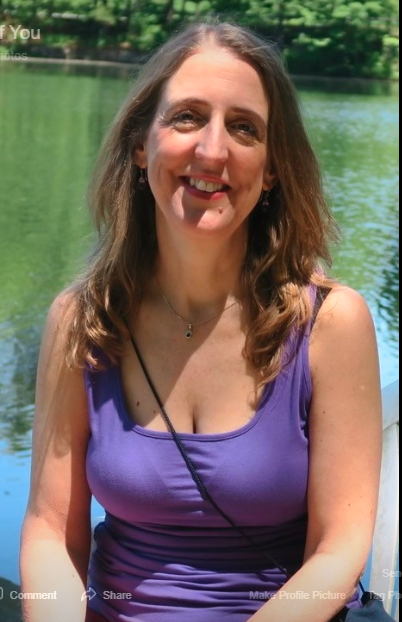 Mary Stevens
Mary StevensBorn 1965 in USA
Living at present: Hurley, NY USAA member of HSA since 2003, Mary Stevens co-judged with John Stevenson the 2013 Nicholas Virgilio Haiku Contest. At the 2015 Haiku North America in Schenectady, NY, she presented “The Cicada’s Voice: How Wabi Sabi Can Teach Us How to Live.”
-
Stevenson, John
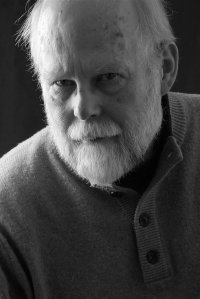 John Stevenson
John StevensonBorn 1948 in Ithaca, New York, USA
Living in Nassau, New York, USA
The Heron's Nest website
Upstate Dim Sum website
Contact the poet
Read the haiku -
Tate Sayre, Barbara
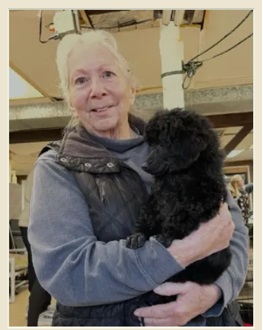 Barbara Tate Sayre
Barbara Tate Sayre(4 February 1944 – 29 July 2024)
Barbara Tate Sayre, born on 4 February 1944, was an American artist and writer whose work achieved distinction in both national and international literary circles. Recognised for her contributions to poetry, incl. the haiku tradition, she was the recipient of several awards, including first place in the Gulf Coast Writers Association Poetry Division. She was also a finalist in the United Poet Laureate International Competition for the Alexander Fui Sak Chang Award in short free verse (Chinese or English), and in the Poetry Society of Tennessee NE Competition, among others.
Her devotion to brevity and precision found its natural home in haiku and related forms. Barbara Tate was an active member of the British Haiku Society, Haiku Society of America, and Haiku Canada, reflecting her deep engagement with the global haiku community. Her poetry and prose appeared in numerous journals, including Akitsu Quarterly, Blithe Spirit, Contemporary Haibun Online, hedgerow, Failed Haiku, Frogpond, Modern Haiku, Presence, Santa Fe Literary Review, Seashores, Storyteller, tinywords and The Heron’s Nest. Within the British Haiku Society, her work was prominently anthologised in volumes such as Wild (2018), Root (2019), Stories Under Every Rock (2020, the 30th anniversary haibun anthology), City (2020, the 30th anniversary haiku anthology), Temple (2021), Water (2022), Change (2023), and the bilingual anthology Shining Wind/Сияен вятър (2024).
Her career as a published writer began in 1968, when her early fiction and poetry first appeared in print. Over subsequent decades, she contributed extensively to a wide range of journals and anthologies, producing work that was consistently noted for its precision, clarity, and evocative brevity. Born in Akron, Ohio, Tate later resided in Winchester, Tennessee. She died on 29 July 2024 following an illness with cancer. Her body of work continues to represent a significant contribution to contemporary haiku and short-form poetry.
Published books:
- Far More Than I Ever Was, by Barbara Tate (Windsor, Conn.: Café Nietzche Press, 2021)
- Darkness in a Noonday Night, by Barbara Tate (Windsor, Conn.: Café Nietzsche Press, 2021)
Selected work:
gold rush
a field of flowers
untamed(BHS Members’ Anthology Wild, 2018)
*
Grand Canyon...
the echoes
of silenceChinese Translation (Traditional):
大峽谷...
寂靜
的迴聲(NeverEnding Story, 4 April 2018)
*
Christmas cantata
the organist pulls out
all the stops(Frogpond, Vol. 42:1, winter 2019)
*
family reunion
creating waves in the
gene pool(BHS Members’ Anthology Root, 2019)
*
park bench
his shadow creeps closer
and grips my hand(City – the 30th anniversary haiku anthology, 2020)
*
Parallel Universe
. . . a microscopic sorcerer chants an incantation and begins lacing and plaiting a silken snare closing the opening in the dreamcatcher, plucking veiled threads and deliberately restraining visions that avoid capture. The master harpist weaves a labyrinth flawlessly and closes the circle seeking to suck reality gone. The nightmare will come.
memories
wrapping myself in a quilt of old age
I believe in pretend(cho 16:3 | Dec. 2020)
*
midnight fog
the lighthouse beacon
a wide arc of warning(BHS Members’ Anthology Temple, 2021)
*
incoming storm
sitting on the sea-wall
me and a cranky sand crab
letting go of memories
one at a timetrail dust
the only thing left
between ussolitude
I lose the chess game
to my alter ego
visiting hours
everyone brings their own
opinion(Darkness in a Noonday Night, 2021)
*
early snow
catching the sky
on my tongueunbalanced
sharing a canoe
with a dragonfly(Far More Than I Ever Was, 2021)
*
first light
fog moves in silencing
a loon’s call(BHS Members’ Anthology Water, 2022)
*
resignation
beginning a journey
to find myself(BHS Members’ Anthology Change, 2023)
*
twilight
a night owl in the shadow
of the moon(BHS bilingual anthology Shining Wind/Сияен вятър, 2024)
Sources:
- https://thehaikufoundation.org/poet-details/?IDclient=2363
- https://charlottedigregorio.wordpress.com/2021/07/23/special-to-the-daily-haiku-july-24-2021-review-of-barbara-tates-latest-collection/
- https://www.thehaikufoundation.org/omeka/items/show/6251
- https://contemporaryhaibunonline.com/cho-16-2/barbara-tate-mending-fences/
- https://drifting-sands-haibun.org/2023/10/09/barbara-tate/
- https://modernhaiku.org/issue53-1/MH53-1-briefly-reviewed.pdf
- https://www.watsonfhtn.com/obituaries/Barbara-Mae-Tate?obId=32569740
- https://neverendingstoryhaikutanka.blogspot.com/2018/04/butterfly-dream-grand-canyon-haiku-by.html
-
Tennison, Michelle
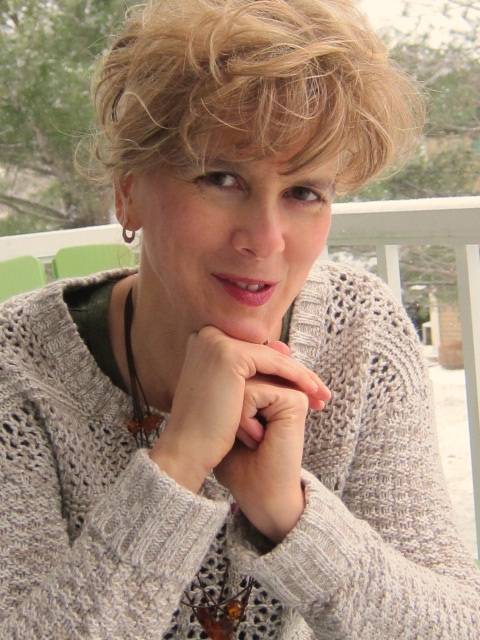 Michelle Tennison
Michelle TennisonBorn 1963 in Cumberland, Maryland USA
Living in Blackwood, New Jersey USA
Contact the poet -
Terrell, Andrew
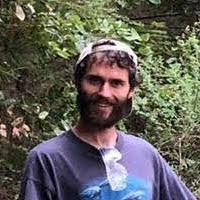 Andrew Terrell
Andrew TerrellBorn: USA 1991
Living in: Dharug Country
Bio: Andrew Terrell was born and raised in the Skagit Valley.
Site: https://www.instagram.com/andrew_terrell_art/
-
Thunell, Carrie Ann
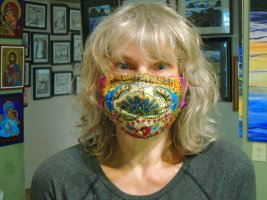 Carrie Ann Thunell
Carrie Ann ThunellBorn 1958 in USA.
Carrie Ann (CAT) Thunell has had poetry and/or art published in over 75 print magazines.
She was editor of the Nisqually Delta Review, which ran for 3 years. Her haiga has been on Simply Haiku, and Haigaonline. Ms Thunell has been published in several of Robert Epstein’s haiku anthologies.
-
Tice, Richard
Richard Tice
Born in the U.S.A.; currently resides in Kent, Washington, U.S.A.
Richard Tice started writing haiku and essays on the form in the 1970s while teaching English in Japan. In the ‘80s he edited Dragonfly: East/West Haiku Quarterly. He has translated more than 200 Japanese haiku. Two collections of his haiku, Station Stop and Familiar and Foreign, have been published.
-
Tico, Tom
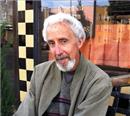 Tom Tico
Tom Tico(15 May 1942 – 4 February 2016)
Thomas Michael Tico was born on 15 May 1942 in San Francisco, California and he lived nearly all his life in the city he loved. Tom Tico’s first haiku appeared in American Haiku in 1966. And since then his poems have been steadily published in various haiku magazines and in a number of anthologies: Cor van den Heuvel’s “The Haiku Anthology”, Bruce Ross’s “Haiku Moment”, and the “San Francisco Haiku Anthology”. Tom also had numerous essays published, mainly in Frogpond, Modern Haiku and other haiku journals. In 1989 Tom Tico was a co-judge to the “1989 Gerald Brady Senryu Awards”. In 1992, he co-edited The San Francisco Haiku Anthology (Smythe-Waithe Press, 1992).
Committed to living an artistic life, Tom Tico dedicated his life to his passion as a haiku poet. In the early 70's, he determined conventional employment was no longer for him. He resigned from his work with the US Postal Service, and dedicated his time and energy for the remainder of his life to creative and personally satisfying pursuits. While his commitment to this path was not without challenges, Tom never wavered from his absolute certainty that he was living his life the way he needed to in order to be true to himself.
In 1998 Tom self-published a book "Spring Morning Sun". In the ‘Introduction’ to the book he wrote: “From 1985 through 1995 I spent over seven years in a state of homelessness, sleeping in a redwood forest in Golden Gate Park.” His experience from those years shaped his haiku significantly. Tom’s life just comes through in his haiku:
At the soup kitchen,
a faded reproduction
of The Last SupperIn my sleeping bag
in a fetal position;
this cold autumn nightLater in his life, Tom developed a passion for photography, and applied the same lens evident in many of his haiku - the beauty of the marriage between the natural and the urban environment.
Tom loved to walk, which gave him the opportunity to find inspiration for his haiku or his photography. Movies and books were two of Tom's other life-long enjoyments. He had an extraordinary knowledge of movies, directors, actors and authors.
Tom Tico passed away peacefully on 4 February 2016 due to a degenerative lung disease. On the last night of his life, he reflected with contentment on his life "as an outsider", the significance of being able to take satisfaction in the character of his children, and his readiness for whatever came next. Tom is survived by his brother, Edward Tico; children: Christopher, Alexander, Minerva and Nathanael Tico; daughters-in-law: Wendy, Kristin and Rebecca; and grandchildren: Jonathan, Alex, Jordan, Morgan, Reeva, Adrian, Gabriella, and Sawyer.
Some publications:
- Tico, Tom. “Personification” [workshop]. Frogpond 21.1 (1998);
- Tico, Tom. “The Imaginative Haiku: Readings by Tom Tico” [workshop]. Frogpond 20.1 (1999);
- Tico, Tom. “Affinities: Thoreau and the Japanese Haiku Poets” [workshop]. Frogpond 22.3 (1999);
- Tico, Tom. “Like a Fine Wine” [workshop]. Frogpond 22.2 (1999);
- Tico, Tom. “The Dark Side of Kali” [workshop]. Frogpond 22.1 (1999);
- Tico, Tom. “The Music of Haiku” [workshop]. Frogpond 24.2 (2001);
- Tico, Tom. “The Sad, Lonely Poetry of the City” [workshop]. Frogpond 20.3 (12/1/1997);
- Tico, Tom. “Endlessness in a Small Frame: Readings” [workshop]. Frogpond 18.2 (summer 1995);
- Tico, Tom. “A Handful of Shadows, Readings” [workshop]. Frogpond 18.4 (winter 1995);
- Tico, Tom. “Tassajara Zen Center” [sequence [5]]. Modern Haiku 10:1 (Winter–Spring 1979);
- Tico, Tom. “A Reading of Marjory Bates Pratt” [workshop]. Modern Haiku 13:1 (Winter–Spring 1982);
- Tico, Tom. “Scarecrow Reading” [workshop]. Modern Haiku 13:2 (Summer 1982);
- Tico, Tom. “The Sun the Moon and the Stars: A Reading of Foster Jewell” [workshop]. Modern Haiku 14:2 (Summer 1983);
- Tico, Tom. “The Peach-Blossom Spring [O Southard]” [workshop]. Modern Haiku 14:3 (Fall 1983);
- Tico, Tom. “River and Mountain: A Reading of Larry Gates” [workshop [10]]. Modern Haiku 15:1 (Winter- Spring 1984);
- Tom Tico, "The Spice of Life", Frogpond 30:1 (winter 2007).
In anthologies:
- Cor van den Heuvel, editor. The Haiku Anthology: English Language Haiku by Contemporary American and Canadian Poets (1974).
- Cor van den Heuvel, editor. The Haiku Anthology: Haiku and Senryu in English (revised [2nd] edition, 1986), and (expanded [3rd] edition, 1999).
- Bruce Ross, ed., Haiku Moment (1993)
Selected haiku:
autumn evening . . .
a page of the old book
separates from the spine(Honorable Mention: 1999 Harold G. Henderson Memorial Award)
*
First days of summer . . .
already the leaves gather
beneath the sycamores(Honorable Mention: 1990 Harold G. Henderson Memorial Award)
*
A wisp of spring cloud
drifting apart from the rest. . . .
slowly evaporates.(“The Haiku Anthology Revised Edition”, Simon and Schuster, 1986, pg. 242)
*
old plum trees:
how quickly the one dies
after the other(Modern Haiku 38:3, autumn 2007)
*
at the burial
one of the black umbrellas
breaks down(Modern Haiku 41:3, autumn 2010)
*
in this little part
of the solar system
dust motes(Frogpond 37:3, Autumn 2014)
*
Sandpipers
running along the glassy beach
on top of themselves
a windless morning
and still the plum blossoms
flutter to the ground
Dusk …
the whole forest dark
except for the lilies
Engulfing
the purple rhododendrons
shadows of evening
a morning fog:
again and again the caw
of an unseen crow
On every step
of the old stone stairway –
autumn leaves(Haiku Moment: An Anthology of Contemporary North American Haiku, Tuttle Publishing, 1993) edited by Bruce Ross
*
As day breaks...
the lightness of her breath
on my back(“The Haiku Anthology”, ed. by Cor van den Heuvel, Norton 1999, pg.222)
*
Sitting in the sun
in the middle of the plants
that I just watered(Woodnotes 25, 1995)
*
Beside the tenement
a box of broken glass
filled with autumn sun
Mud-puddle water
going this way and that--
spring wind
After gazing at stars . . .
now, I adjust to the rocks
under my sleeping bag
Nothing to bring her . . .
except flowers from the gardens
all along the way
Shortening the line
at the soup kitchen--
the first fall rain
The old carving tree . . .
a new pair of initials
and the first young leaves
The white butterfly
just the touch of my shadow
and it flies away("Spring Morning Sun" (1998)
*
Misting across
the cold bright stars -
my own breath(Published in San Francisco Chronicle on Feb. 28, 2016)
This profile was created with the kind help of Charles Trumbull, Peggy Mather, John Stevenson and Michael Dylan Welch.
And this is Tom’s tribute written by his children at the San Francisco Chronicle, Feb. 28, 2016:
http://www.legacy.com/obituaries/sfgate/obituary.aspx?n=thomas-tico&pid=177872280
Sources:
- http://shapingwords.blogspot.co.uk/2013/08/spring-morning-sun-review-of-haiku-of.html
- http://home.earthlink.net/~tclausen/id23.html
- http://www.hsa-haiku.org/hendersonawards/henderson.htm
- http://www.hsa-haiku.org/frogpond/backissues/37-3-Frogpond-Autumn-2014.pdf
- http://www.modernhaiku.org/issue38-3/haiku38-3.html
- http://www.poetrysociety.org.nz/node/426
- https://thehaikuexperiment.wordpress.com/2015/07/19/wither-tom-tico/
- http://haikureality.theartofhaiku.com/esejeng128.htm
- http://www.kenjoneszen.com/haiku/chrysanthemums_and_black_battleships
foghorns…
the vague shapes
of familiar treesbeneath purple leaves
the unpicked fruit
stains the sidewalkafter a long stretch of stargazing first light
around the corner
from the swank nursing home
one for the poorValentine’s Day:
my heart favors
the plum blossomsin this little part
of the solar system
dust motesloosening
the hard and fast lines
fogfollowing the lead my elongated shadow
cold park:
so many trees
skeletonizedemphysema --
it could be the name
of an exotic femme fatale
who ends up leaving you
breathlessEaster morning
rising later
than usualangels’ trumpets
yet here and there
a bit of rustinsomnia…
getting to know
the nightthe chiaroscuro of crows and morning mist
intermittent rain the long and the short of it
making the most
of the broken-down fence
nasturtiumsin the world
but not of it --
autumn windjust another
of winter’s losses --
my singing voiceevery bit as black
as the plumage of the crows --
their strident cries -
Tico, Tom
 Tom Tico
Tom TicoMay 15, 1942 - February 4, 2016
Tom Tico's Legacy Biography -
Trumbull, Charles
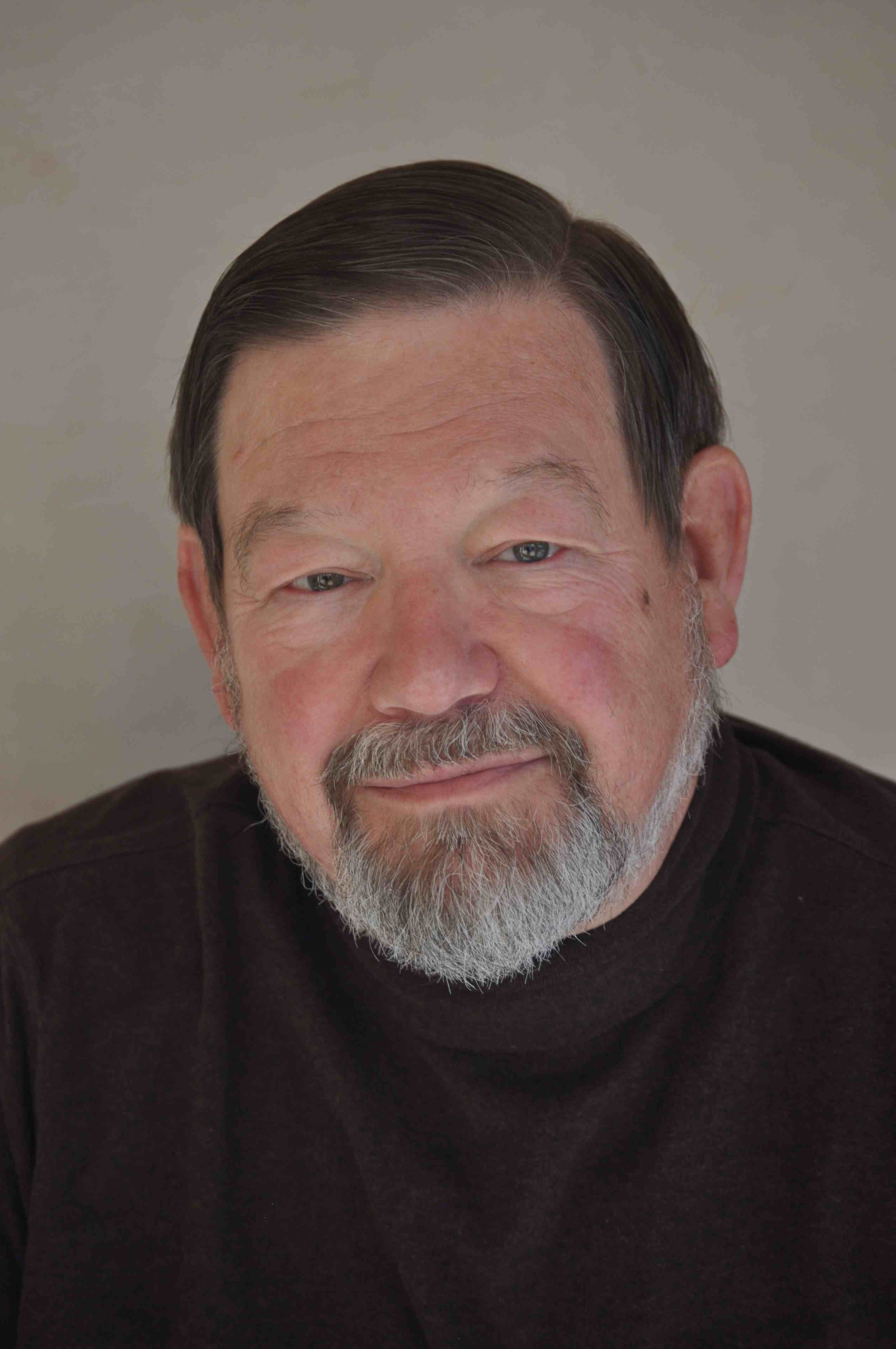 Charles Trumbull
Charles Trumbullborn May 17, 1943, Flint, Michigan, U.S.A. Now resides in Santa Fe, New Mexico.
Email: trumbullcp [at] comcast [dot] net.Dr. Charles Trumbull is retired from research, writing, editorial, and publishing positions at the U.S. National Academy of Sciences, Radio Free Europe/Radio Liberty, and Encyclopædia Britannica. He is past president of the Haiku Society of America and retired editor of Modern Haiku. His chapbook Between the Chimes was published in 2011, and A Five-Balloon Morning, a book of New Mexico haiku, appeared in June 2013. A History of Modern Haiku came out in 2019. These days he divides his time between his Haiku Database and Haikupedia, the online encyclopedia of haiku.
-
van Zutphen, Ted
Ted van Zutphen
Born 1950 in Rotterdam, Netherlands
Living in a mobile home travelling USA
http://nierf.com
Contact the poet -
Villa, Christine L.
Christine L. Villa
Born in Quezon City, Philippines
Living in Sacramento, California, USA
http://blossomrain.blogspot.com
Contact the poet -
Wechselberger, Joseph P.
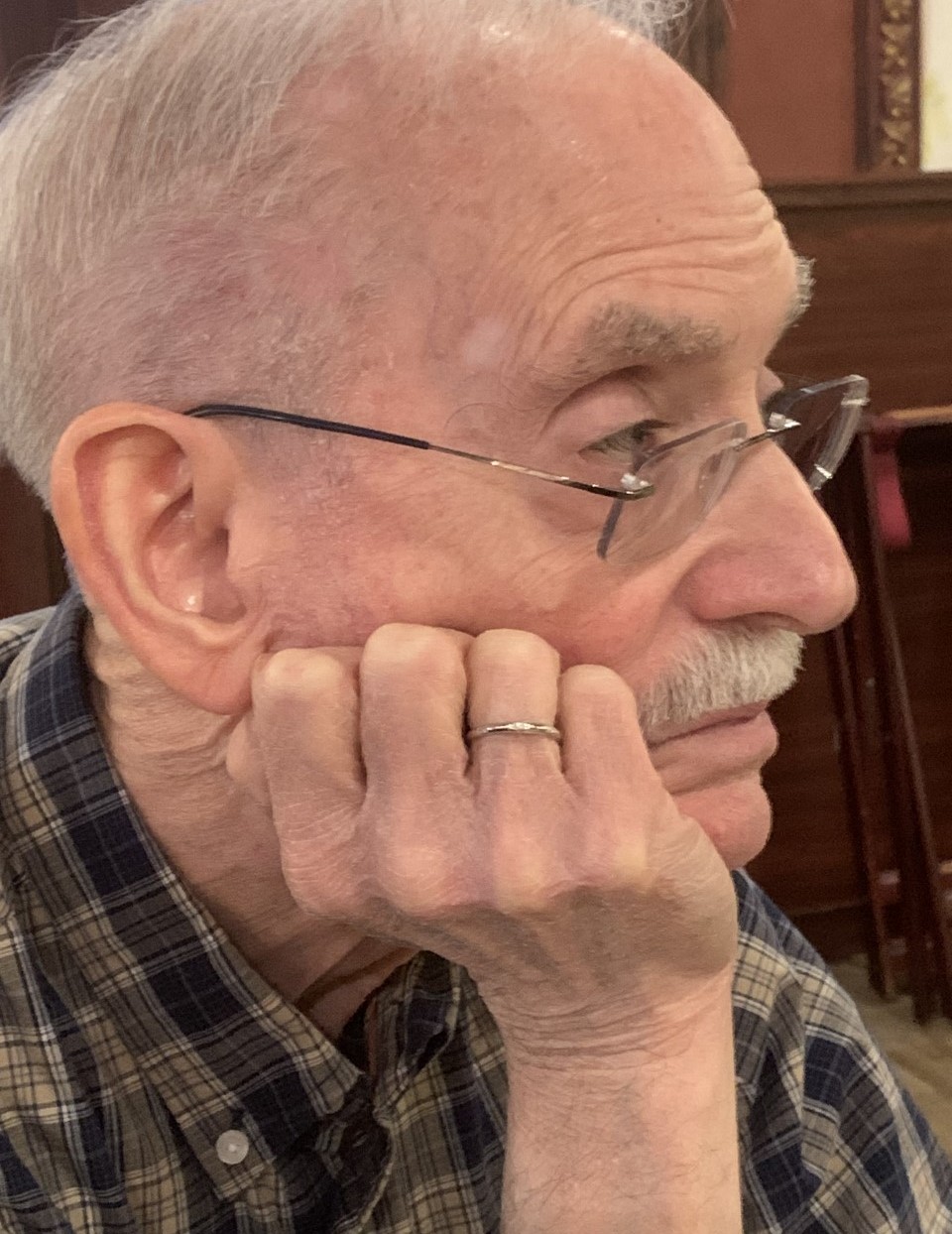 Joseph P. Wechselberger
Joseph P. WechselbergerBorn 1946 in Philadelphia, Pennsylvania USA
Living in Browns Mills, New Jersey USA
EmailThis email address is being protected from spambots. You need JavaScript enabled to view it. Retired since 2007, Joseph is a member of the Haiku Society of America. Touchstone nominated in 2021, 2022, and 2023 (long-listed), his work has appeared in 46 haiku journals, various blogs and anthologies, Haiku 2022, and The Red Moon Anthology of English-Language Haikufor 2020, 2022 and 2023.
-
West, Richard
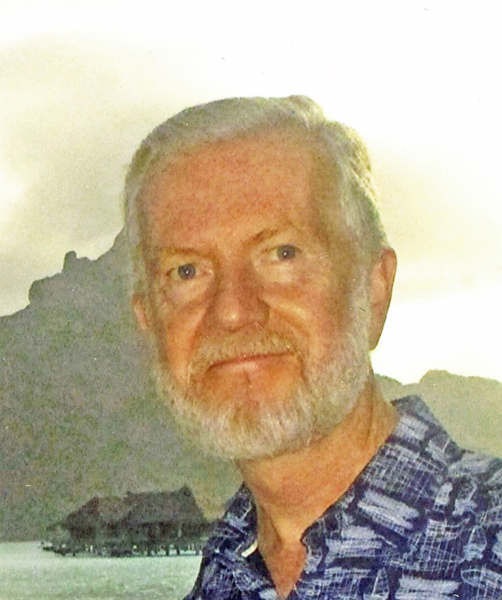 Richard West
Richard WestThis email address is being protected from spambots. You need JavaScript enabled to view it. , the pen name of Richard Wilkinson, was born in 1951 in the UK, and currently lives in AZ, USA."Richard West" was Regents' Professor of Classics in a large public university and has published numerous books and many articles and poems under his own name or various pen names. He now lives in the Desert Southwest, where he enjoys cooking and attempting to add flavor to his poems.
-
Whitman, Neal
Neal Whitman
Born 1948 in Boston Massachusetts, USA
Living in Pacific Grove, California, USA
Contact the poet -
Williams, Joshua Eric
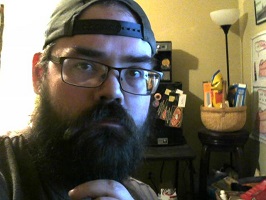 Joshua Eric Williams
Joshua Eric Williams
Born 1983 in Carrollton, GA, USA
Joshua Eric Williams is from Carrollton, GA. He has an M.A. in Creative Writing with an emphasis in poetry from Western State Colorado University. His work explores and experiments with short forms (including haiku, senryu, epigrams, sonnets, pantoums, and villanelles).
-
Wills, John
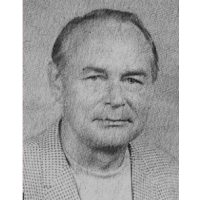 John Wills
John Wills(4 July 1921 – 24 September 1993)
John Howard Wills was born on 4 July 1921 in Los Angeles, California. He received an MA degree from the University of Chicago in 1951, and a PhD from Washington University in St. Louis in 1961. For more than two decades John taught American and English literature at universities in Ohio, Wisconsin, Minnesota, North Dakota, North Carolina, Georgia, and Tennessee and during that time, he published critical essays on T. S. Eliot, Joseph Conrad, and other writers. After the death of his first wife, he married artist and poet Marlene Morelock (now known as Marlene Mountain). They worked together on several haiku projects with him writing the poem and her creating the artwork behind the poem – drawings and photographs.
John’s earliest attempts at writing haiku were made in 1965 after Marlene showed him 'The Way of Zen' by Alan Watts. Actually his earliest haiku writing was influenced by his children's poems. Later in 1968, a colleague gave John and Marlene some back copies of ‘American Haiku’ (which had published its last issue that May). John’s serious interest in haiku began after getting acquainted with the work of Nicholas Virgilio. As he wrote more and more haiku, his skills quickly improved and some early work appeared in 1969 in Haiku West, SCTH, Haiku (Canada), and Haiku Spotlight (Japan). Within that same year, John published his first two books - Weathervanes and Back Country. If one considers the poets publishing in early ‘American haiku’ as the first wave, John was among the second wave of contemporary writers of English-language haiku and some of his earliest work did not follow the traditional rules. He had a very unique style of writing and according to some haiku experts there was a certain iambic meter to his style, almost like a musical flow in his haiku. Encouraged by his wife Marlene Mountain who was one of the first English-language haiku poets to write haiku regularly in a single horizontal line, John wrote some 'one-line' haiku which were later published.
In 1970, John spent the summer studying haiku in Matsuyama, Japan, under a research grant from Georgia Southern College, and in 1971, he moved with his family to Tennessee. They lived on 100 acres in the mountains of Tennessee and named their land "Sweetwater." Much of his best work was written there and he would be called by some the greatest nature poet writing haiku.
By the end of his life, John Wills had published more than 800 haiku and nine books. His haiku were published in journals and anthologies and his work still appears in articles and essays written by a new generation of haiku poets, as well as by his contemporaries who continue to cherish and admire his work. John Wills died on 24 September 1993.
Books Published:- Weathervanes, published by Rhoda de Long Jewell ; (Sangre de Cristo Press, 1969);
- Back Country, photographs by Marlene M. Wills. Partial funding: Georgia Southern College (1969);
- river, drawings by Marlene M. Wills for Georgia Southern College (1970), 2nd ed. Elizabethton, Tenn. (1976);
- The Young Leaves: Haiku of Spring and Summer,drawings by Marlene M. Wills. Statesboro, Ga.: Georgia Southern College (1970);
- Cornstubble: Haiku of Fall and Winter, Photographs by Marlene M. Wills. Statesboro, Ga.: Georgia Southern College (1971);
- 21 haiku greeting cards, haiku by John Wills, drawings/design by Marlene Wills, 1977, self-published, TN;
- Up a Distant Ridge, Manchester, N.H.: First Haiku Press (1980);
- Reed Shadows, Sherbrooke, Que./Windsor, Ont.: Burnt Lake Press/Black Moss Press (1987);
- mountain, S.E. Publishing (1993).
Awards and other Honours:
- Appointed to the first Haiku Society Awards Committee (the Society accepted the committee's recommendations and added awards for Wills' books Back Country and river);
- Served on the first selections panel for Frogpond magazine;
- First Honourable Mention, HSA Merit Book Awards for Reed Shadows;
- John had 21 haiku selected for the 1974 edition of The Haiku Anthology, 36 haiku for the 1986 edition, and 40 for the 1999 edition.
Selected works:
The hills
release the summer clouds
one . . . by one . . . by one(Back Country, Wills J., (1969)
the old field
throbs with insects...
summer moon(Frogpond 8:3 (1985)
autumn wind
the rise and fall
of sparrows(Modern Haiku 18:1 (winter-spring 1987)
the river
leans upon the snag
a moment(Reed Shadows, Wills, J.,Sherbrooke, QC.: Burnt Lake Press, 1987)
dusk from rock to rock a waterthrush
(Up a Distant Ridge (1980); The Haiku Anthology, Van Den Heuvel, Cor, ed. , New York: Norton, 2000, p.301)
in an upstairs room
of the abandoned house
a doll moongazing(The Haiku Anthology, Van Den Heuvel, Cor, ed. , New York: Norton, 2000, p.304)
i catch
the maple leaf then let
it go(from Haiku Mind: 108 Poems to Cultivate Awareness and Open Your Heart by Patricia Donegan, Shambhala Publications Inc, 2008)
More of John’s early haiku at:
http://www.marlenemountain.org/backward/limage/ftm8c_jwillshaiku.html
Some articles, essays and interviews with John Wills:
- Wills, John, "Depth in Haiku," unpublished essay (1974);
- van den Heuvel, Cor, ed., The Haiku Anthology, New York: Anchor Books (1974);
- McClintock, Michael, "A Conversation With John Wills," Modern Haiku 7:2 (1976), 6-8;
- van den Heuvel, Cor, "John Wills and One-Line Haiku - I: A Troutswirl Simplicity", Frogpond 4:4 (1981), 30–33;
- van den Heuvel, Cor, "John Wills and One-Line Haiku – II: One-Liners", Frogpond 5:1 (1982), 38–45;
- van den Heuvel, Cor, "John Wills and One-Line Haiku – III: Three in One or One in Three", Frogpond 5:3 (1982), 38–46 [Correction in Frogpond VI;1 (1983), 45-46;
- St. Jacques, Elizabeth, "The Importance of Rhythm in Haiku," Woodnotes 15 (1992);
- Estevez, Efren, "Images of John Wills," Frogpond XXVII:1 (2004), 55-57;
- Estevez, Efren, "Troutswirl: Art in the Nature Poems of John Wills," The Haiku Society of America Newsletter XXI:4 (2006), 12-13.
Sources:
http://www.marlenemountain.org/mminfo/mi_mmjw_books.html
http://www.thehaikufoundation.org/poet-details/?IDclient=7
http://terebess.hu/english/usa/wills.html
http://performance.millikin.edu/haiku/writerprofiles/RuffnerOnWills.html
https://en.wikipedia.org/wiki/Haiku_in_English
http://www.hsa-haiku.org/frogpond/2010-issue33-2/essay2-miller.html
http://www.modernhaiku.org/essays/RossEssay.htmlThis profile was created in collaboration with John Wills’ wife the poet and artist Marlene Mountain. We appreciate her help in updating the available information on John’s biography and publications!
-
Wilson, Billie
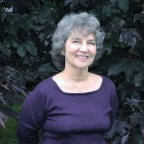 Billie Wilson
Billie Wilson(born August 1, 1941, Lafayette, Indiana, U.S.A.) is a long-time member of the Haiku Society of America, and served several terms as Regional Coordinator for the Alaska Region. Since 2003, she has coordinated the annual haiku competition honoring her first mentor, Robert Spiess. She helped create and care for The Haiku Foundation's Haiku Registry (2009-2018). She served as Associate Editor for The Heron’s Nest (2011 - 2017). Some of her awards include the Harold G. Henderson Memorial Award, the Gerald Brady Memorial Award, and The Heron's Nest Readers' Choice Poem of the Year. She has resided in Juneau, Alaska, since 1962.
-
Wilson, Robert D.
Robert D. Wilson
Born 1949 in Los Angeles, California, USA
Living in Philippines
http://lousymirror.blogspot.com
http://simplyhaikujournal.com
Contact the poet -
Wisdom, John W.
John W. Wisdom
Born in Tampa, Florida, USA
Living in South Sarasota, Florida, USA
Contact the poet -
Woerdehoff, Valorie Broadhurst
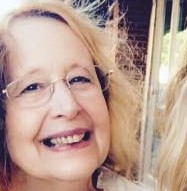 Valorie Broadhurst Woerdehoff
Valorie Broadhurst WoerdehoffBorn 1954 in the USA
Valorie Broadhurst Woerdehoff, originally from Northern California (USA), has for the last nearly 35 years called Dubuque, Iowa, home. Her poems, including haiku, senryu and rengay, have been widely published. She has judged haiku contests and earned awards for her writing and haiku on the local and national level.
-
Woodruff, Keith
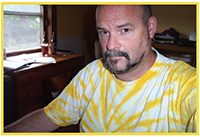 Keith Woodruff
Keith WoodruffBorn in San Jose, California, in 1963. Currently living in Ohio and missing the ocean. I have an MA in poetry from Purdue U, and am honored to have had my work appear in Modern Haiku, Frogpond, Mayfly, Acorn, A Hundred Gourds, and the Big Sky: the Red Moon anthology.
-
Young, Gideon
 Gideon Young
Gideon YoungGideon Young is a member of the Carolina African American Writers’ Collective, a Fellow for A+ Schools of North Carolina, a K-12 Literacy Specialist, and a stay-at-home dad. His debut haiku collection my hands full of light was published by Backbone Press (2021). His poetry is included in Best Spiritual Literature 2022 (Orison Books) and was nominated for the Pushcart Prize. Gideon is co-author of One Window’s Light: A Collection of Haiku, published by Unicorn Press, 2017, winner of the Haiku Society of America Merit Award for Best Anthology. Find recent and forthcoming work in Callaloo, Journal of Black Mountain College Studies, Juxta 8, North Carolina Literary Review, Our State Magazine, and Pan Haiku Review. Winner of a 2023 Arts in Education Artist Residency Grant from the North Carolina Arts Council, discover more at www.gideonyoung.com.
Page 2 of 2
